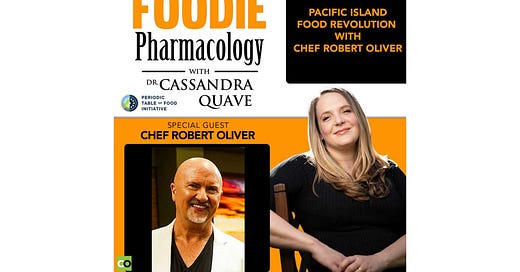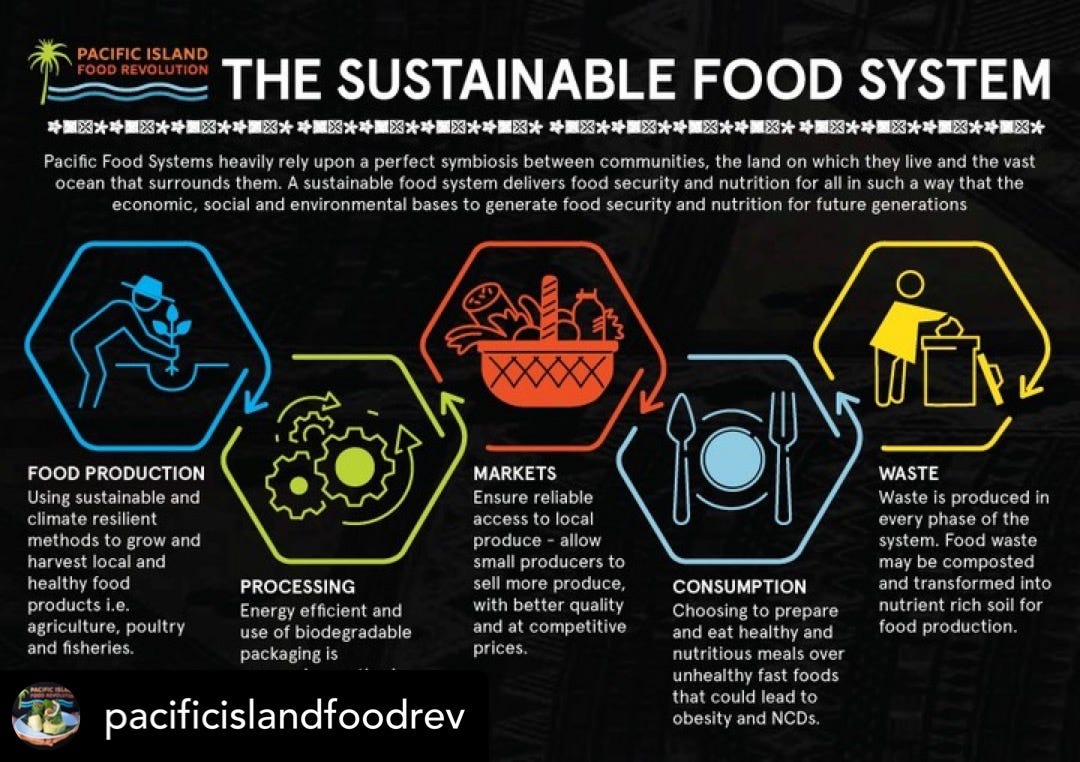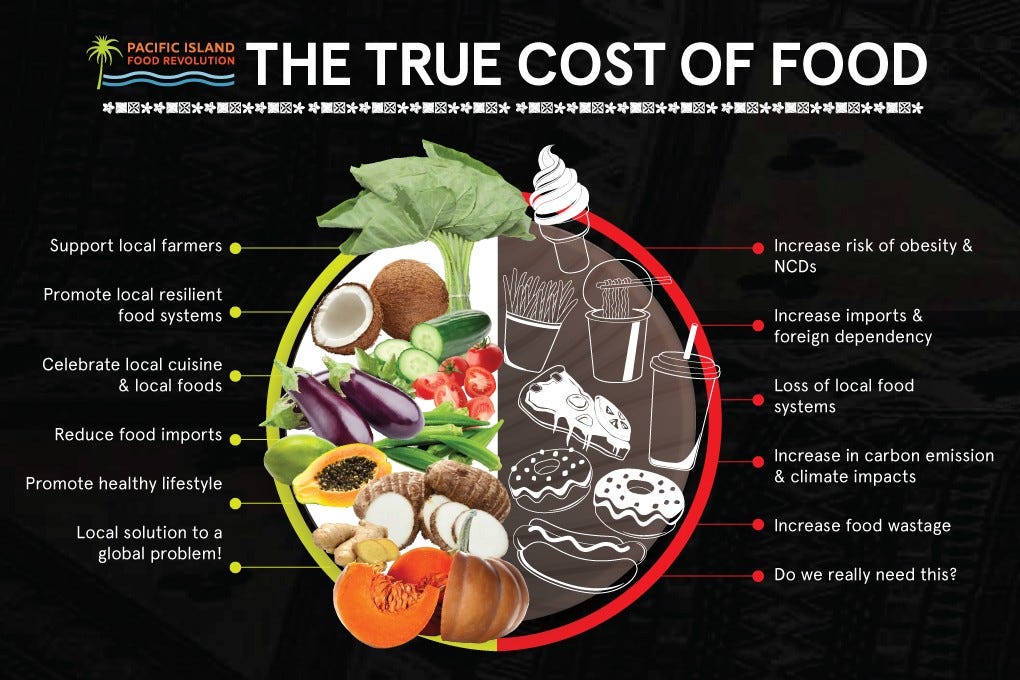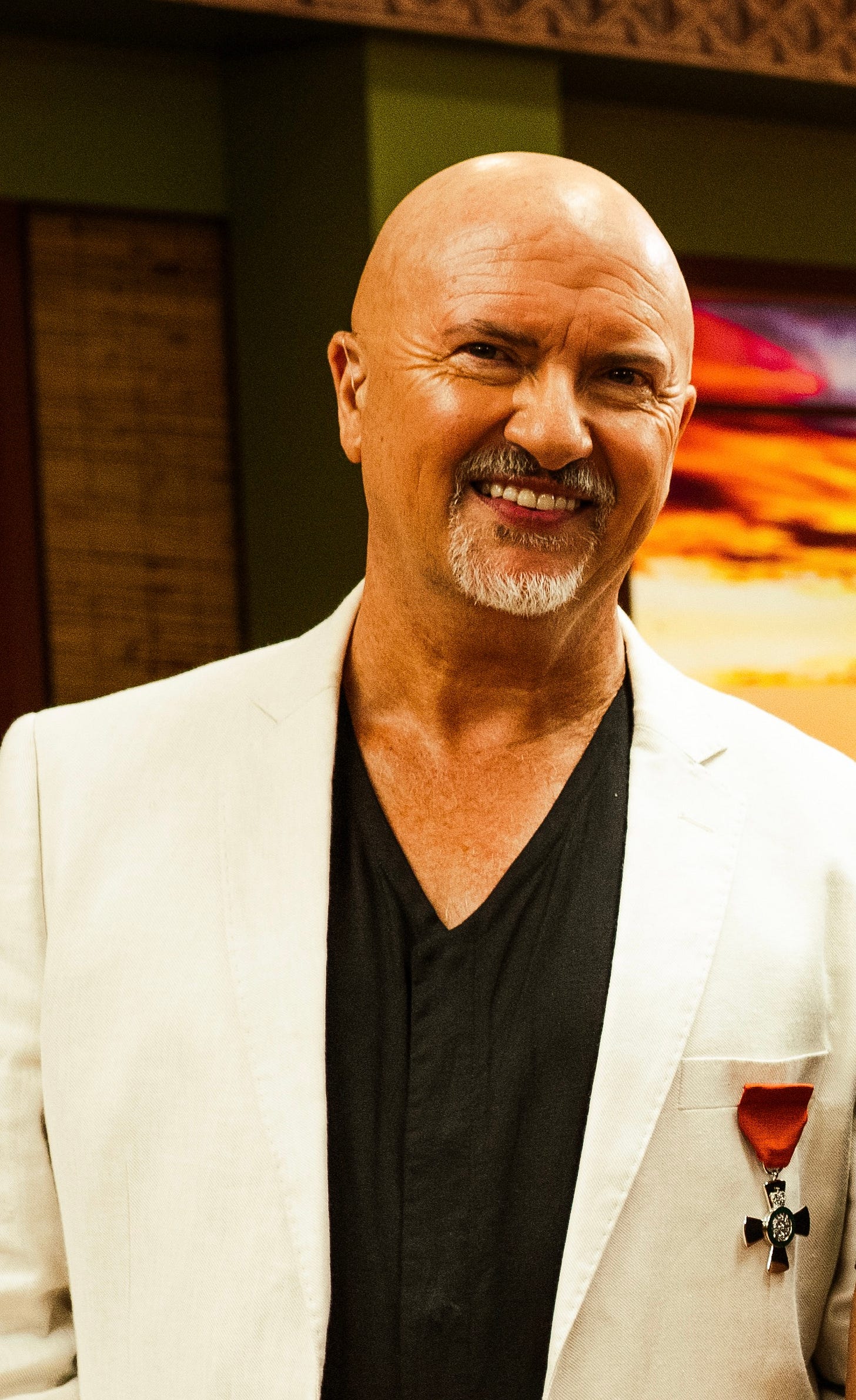🎧 Pacific Island Food Revolution with Chef Robert Oliver
Join Dr. Quave and Chef Oliver as they examine the unique flavors of the South Pacific.
Can food culture help combat non-communicable lifestyle diseases? We explore this question and more in the first episode of Season 6 of the Foodie Pharmacology podcast with Dr. Cassandra Quave. This week's guest is Chef Robert Oliver, an award-winning author, TV host, food ambassador, and renowned New Zealand chef with restaurants in cities like New York, Miami, Las Vegas, and Sydney. Chef Oliver discusses his passion and in-depth knowledge of Pacific cuisine, the significance of local foods, and the impact of his initiative, the Pacific Island Food Revolution. This movement aims to fight lifestyle diseases in the region by revitalizing and promoting traditional Pacific cuisine and sustainable farming methods. Join Dr. Quave and Chef Oliver as they delve into his innovative work, the unique flavors of the South Pacific, and how food and culture can foster social and economic transformations while promoting health and sustainability.
This podcast is sponsored by The Periodic Table of Food Initiative in association with the American Heart Association. The views and opinions in this podcast are those of the presenters and represent the synthesis of science. For more information on the Periodic Table of Food Initiative, please visit https://foodperiodictable.org/
Access a summary of this Foodie Pharmacology episode at the bottom of this post. This special feature is available to paid subscribers of the Nature’s Pharmacy newsletter.
About Robert
Robert Oliver is a chef, author, and TV host from New Zealand. He has started restaurants in New York, Miami, Las Vegas and Sydney, "farm to table" resorts in the Caribbean.
Robert is the Chef Ambassador for Le Cordon Bleu, New Zealand and has authored two popular culinary books: Me’a Kai: The Food and Flavours of the South Pacific and Mea’ai Samoa. Me’a Kai stunned the food world by winning “Best Cookbook in the World” at the Gourmand Awards in Paris.
In 2017, Robert was honored with a KEA World Class New Zealander Award and in 2022 was awarded the New Zealand Order of Merit in recognition for his services to the food industry and Pacific Communities.
Robert is the Executive Director and Founder of Pacific Island Food Revolution, a television media-led movement across the South Pacific designed to return the region to traditional cuisine to curb the Pacific’s non communicable diabetes (diabetes and lifestyle disease) crisis. Pacific Island Food Revolution television plays across the Pacific, in New Zealand, Australia, Asia, the UK and the USA and internationally via Parade Media.
Listen to the interview
Listen to the podcast on any of your favorite podcast streaming services. Subscribe to Foodie Pharmacology to access new episodes weekly! If you enjoy this and other episodes, let me know! Give is a 5-star rating on Apple Podcasts so others can find it and enjoy!
Watch the video
Available exclusively on the Teach Ethnobotany YouTube Channel, you can catch the full video version of this episode and others! Enjoy!
Yours in health, Dr. Quave
Here is the episode summary, available to Nature’s Pharmacy paid subscribers:
Introduction
Our guest today is the renowned chef, author, and TV host, Robert Oliver. Hailing from New Zealand, he has established restaurants across the globe from New York to Sydney. With a unique focus on traditional Pacific food systems and dedication to combatting non-communicable diseases through Indigenous cuisine, he is the executive director of Pacific Island Food Revolution. Let's dive into the world of traditional Pacific cuisine and learn more about how it is revolutionizing local health and sustainability.
Chef Robert Oliver and the Pacific Island Food Revolution
A resident of Fiji and Samoa for many years, Robert found that although Pacific cuisine is rich and varied, it is underrepresented. Noticing that Pacific Island countries increasingly depend on imported food for tourism, it inspired him to document and promote the food systems he grew up with through his cookbooks "Mea Kai: The Food and Flavors of the South Pacific" and "Mea Samoa." These works paved the way to leverage the TV industry's influence to promote traditional food systems and combat lifestyle diseases that have hit the Pacific region hard.
A Return to Traditional Food Systems
By shining a light on the locally sourced, fresh, and healthful produce that make up traditional Pacific cuisine, Robert and his team use the power of entertainment to steer communities away from processed foods. Robert believes that by reviving traditional foods and systems, they’re surprised to discover that what they considered "trashy TV" is actually having a profound local impact.
Preserving Biodiversity with Traditional Cuisine
Apart from addressing health concerns, reintroducing traditional cuisine plays a significant part in maintaining biodiversity. By promoting traditional crops integral to Pacific cuisine, these traditional farming systems are getting recognized, thereby preserving localized food systems.
Robert remarked how food systems contribute to the local economy, health, and wellbeing and how they help counter climate change effects. The Pacific, owing its abundant natural supply of fish, fruits, seaweeds, and other crops to its volcanic soil, faces no scarcity of nutritious food. By encouraging locals to tap into this richness, he seeks to minimize food imports and foster an appreciation for the culture too.
More Than Just a TV Show: A Socially-Led Change
Pacific Island Food Revolution continues to expand its impact beyond the television. Collaboration with educational institutions and government units fuel a student-led food movement, activating the energy and influence of the younger demographic. At the grassroots level, Pacific Island Food Revolution offers support to community initiatives, such as the Sanma Food Revolution in Vanuatu.
In the future, Robert sees the Pacific Island Food Revolution extending its influence to other regions with similar needs, such as Africa and the Caribbean, thereby making local food systems the driver of health, biodiversity conservation, and climate-smart systems.
A Recipe for Change
Robert encourages everyone to try their hand at Pacific-inspired dishes. With accessible ingredients and a simple process, dishes like the Banana Va’a, which includes ripe bananas, lime, orange zest, and freshly grated coconut, offer a tasty introduction to Pacific Island cuisine.
Conclusion: Reclaiming Food and Health Sovereignty
Both globally and in the Pacific, Chef Robert Oliver’s work demonstrates how embracing traditional food systems and cuisines can serve as a pathway to reclaiming health sovereignty. It brings to the forefront the relevance and importance of maintaining not just the physical, but also the cultural and social aspects of food systems. By appreciating the value of traditional foods, communities around the world can enjoy the double benefit of increased health and sustainability while preserving a vital part of their cultural heritage. Now, isn't that food for thought?








